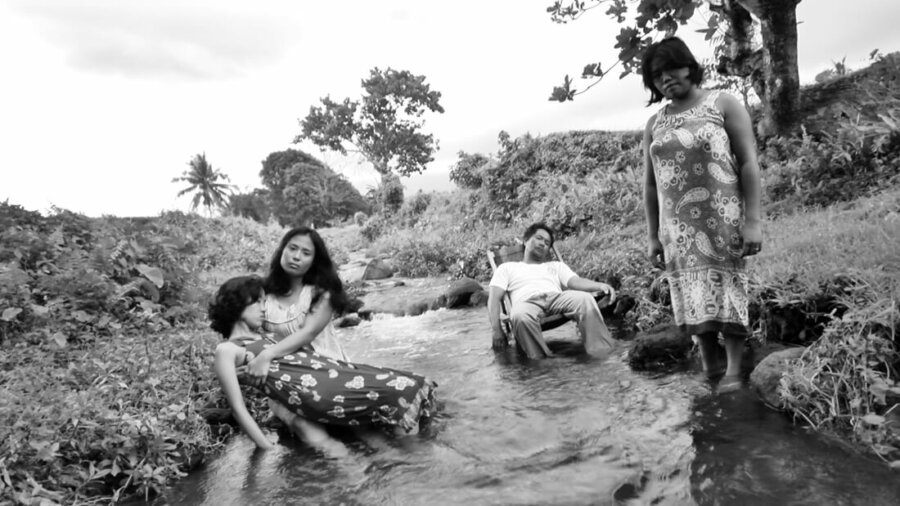
Cinema
Lav Diaz. Very Rich Hours
From 03 November to 05 December 2015
Jeu de Paume – Paris
From 3 November to 5 December 2015, in partnership with the Festival d’Automne in Paris, Jeu de Paume is presenting the first French retrospective by Lav Diaz (Mindanao, 1958), accompanied by a programme of discussions with the director and other guests.
Lino Brocka made three films to please his producers so that he could at last make the film he wanted, one that would stir Filippino consciousness or reaffirm its determination at a time when cinema was used as a visual barbiturate by the Marcos dictatorship. Thanks to digital technology his spiritual heir Lav Diaz had no need of such a pact. A major figure of contemporary cinema, the films that Diaz has made since the turn of the century emancipate cinema from the constraints of the industry, and Filippino individuals from their tragic fate.
This fate is emblematic of the post-colonial condition. The Filippinos underwent three centuries of Spanish imperialism, five decades of American domination, Japanese occupation, and martial law under Marcos, whose regime Diaz sees as the fourth cataclysm in the history of the country, which itself is constantly prone to natural catastrophes. From Evolution of a Filipino Family (begun in 16 mm in 1994 and completed ten years later on DV after numerous misadventures) to From What is Before (grand prize at the Locarno Festival in 2014) and Storm Children, he exposes and fights the heritage of the dictator and the colonists by relating the stories of individuals fighting against poverty, tyranny, alienation and devastation. Expropriated peasants, refugees from the villages, battered women, tormented writers, and activists in hiding. For Diaz, “the history of a Filippino individual is the history of the Filippino struggle.”
If Lino Brocka is a key figure for any filmmaker from the archipelago, Diaz’s influences are more varied. Inspired by melodrama, rock, Dostoevsky, Tarkovsky and Béla Tarr, he combines acute political consciousness and a pronounced interest in popular narrative forms and pastoral tales. Although his films are generally based on traditional narrative structures, they radically extend these in order to create a sense of sui generis time. According to him, the Filippino psyche has inherited from its Malay ancestors a sensibility for which it is not time that governs space, but the contrary. The famous length of his films is not a sign of either experimental ostentation or monumental megalomania, but marks the reconquest of a sensibility repressed by the imposition of the Western liturgy and productivism.
Diaz’s method is to oppose these with a contrasting vision that is fundamentally generous. Each film project is the occasion of a long sojourn, often in regions well away from the state’s concerns. The fiction emerges organically, via unexpected events and contributions, spontaneous ideas and endless rewriting, churned out through hard work and grace. This cycle provides an opportunity to discover an area of contemporary cinema that is little known in France, comparable in its grandeur and beauty to the work of Wang Bing and Pedro Costa.
Programming: Antoine Thirion
The retrospective “Lav Diaz. Very Rich Hours” is organized in partnership with the Festival d’Automne à Paris, the Cinémathèque royale de Belgique, Courtisane and BOZAR, with the collaboration of Shellac, the help of the Embassy of the Philippines in Paris and the complicity of Phantom, Dissidenz films, MUBI and Light Cone.
Medias partners: Arte, Courrier International, Le Monde, Transfuge and France Culture.
